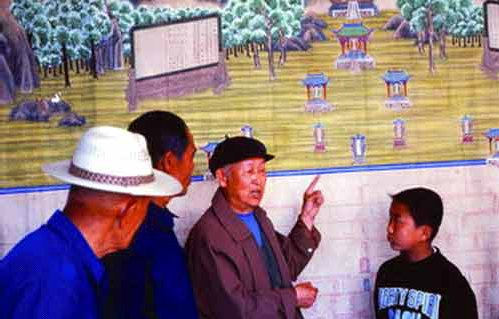 |
|
[Photo/Chinaculture.org] |
FU Yuguang, now in his 80s, is still busy with his thus far 30-year-long labor of love – studying and delving into Manchu shuobu works to save the art form from extinction. Since 2007 he has been working on the shuobu materials collected from his interviews and surveys to compile a series of books on the Manchu oral tradition. Two series of a total 12 million Chinese characters were published in 2009. They clearly record the rise and fall of the Manchu ethnic group and are of great value as regards Manchu history and the history of ethnic relations in Northeast China. Shuobu stories are often about warfare and the private lives of Manchu people and their ancestors. This genre is called ulabun, which means biography in the Manchu language. Before the Manchus conquered the Central Plains area, there was no tradition of recording history in written form among the group; oral narration by the chieftains of individual tribes or shamans was the most common way to record history and educate younger generations. Over the centuries, ulabun works that collect and pass down the history of different tribes have formed a Manchu encyclopedia that has become part of the canon of folk literature in northern China.